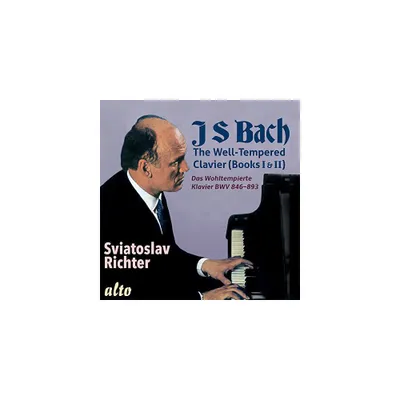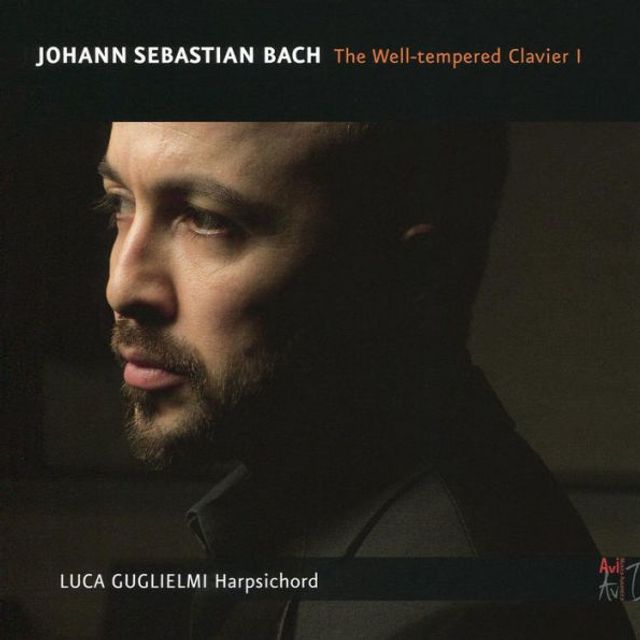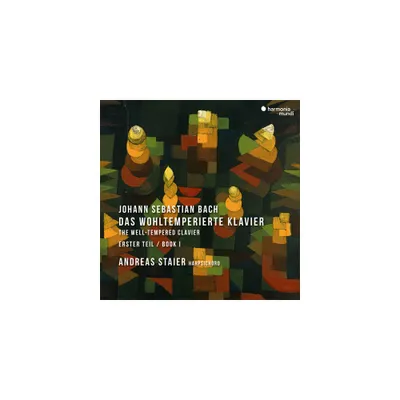Home
J.S. Bach: Well-Tempered Clavier, Book I
Loading Inventory...
Barnes and Noble
J.S. Bach: Well-Tempered Clavier, Book I
Current price: $21.99


Barnes and Noble
J.S. Bach: Well-Tempered Clavier, Book I
Current price: $21.99
Loading Inventory...
Size: OS
*Product Information may vary - to confirm product availability, pricing, and additional information please contact Barnes and Noble
For those who feel that
Glenn Gould
's
Bach
just didn't go far enough, here is just the thing. Pianist
Christopher O'Riley
, better known for classical renditions of
Radiohead
songs, embarks on
Well-Tempered Clavier
and produces one of the most extreme readings heard in quite a while. Historical performance purists may have to be carried out in a cold sweat after hearing this, but from others, it demands attention.
O'Riley
's readings of the
first book
of the
are not just pianistic in the usual way but use the piano in the service of a kind of atomization of
's musical texts. His playing here depends more on articulation, phrasing, and dynamics than on use of the pedal, which is light. He breaks up
's phrases into small moments in search of the music's intricacies, and in so doing, he inserts a lot of spaces into the music, something he justifies with reference to the Japanese aesthetic concept of Ma, meaning "the space between." Sample the Fugue in F sharp minor from
BWV 859
to hear just how far
's deliberate approach can go. Each prelude and fugue pair is treated as sui generis; while there are certainly commonalities all the way through,
's canvas is variegated. For all the unorthodoxy, however,
's is not a quasi-improvisational approach. The phrasings of his fugal subject statements are consistent, and his larger structures are pretty rigorous. One may like this, or one may not, but it is absolutely worth hearing. ~ James Manheim
Glenn Gould
's
Bach
just didn't go far enough, here is just the thing. Pianist
Christopher O'Riley
, better known for classical renditions of
Radiohead
songs, embarks on
Well-Tempered Clavier
and produces one of the most extreme readings heard in quite a while. Historical performance purists may have to be carried out in a cold sweat after hearing this, but from others, it demands attention.
O'Riley
's readings of the
first book
of the
are not just pianistic in the usual way but use the piano in the service of a kind of atomization of
's musical texts. His playing here depends more on articulation, phrasing, and dynamics than on use of the pedal, which is light. He breaks up
's phrases into small moments in search of the music's intricacies, and in so doing, he inserts a lot of spaces into the music, something he justifies with reference to the Japanese aesthetic concept of Ma, meaning "the space between." Sample the Fugue in F sharp minor from
BWV 859
to hear just how far
's deliberate approach can go. Each prelude and fugue pair is treated as sui generis; while there are certainly commonalities all the way through,
's canvas is variegated. For all the unorthodoxy, however,
's is not a quasi-improvisational approach. The phrasings of his fugal subject statements are consistent, and his larger structures are pretty rigorous. One may like this, or one may not, but it is absolutely worth hearing. ~ James Manheim

![J.S. Bach: The Well-tempered Clavier, Book I [Live, March 1987]](https://prodimage.images-bn.com/pimages/0028948180165_p0_v1_s600x595.jpg)







![Bach: The Well-Tempered Clavier [1973]](https://prodimage.images-bn.com/pimages/0602003687204_p0_v2_s600x595.jpg)








